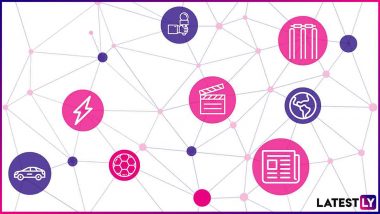New Delhi, Mar 24 (PTI) Public sector banks (PSBs) are likely to pay a dividend in excess of Rs 15,000 crore for the financial year ending March 2024 on the back of improved profitability, according to sources.
In the first three quarters of the current financial year, all 12 PSBs earned a total profit of Rs 98,000 crore, only Rs 7,000 crore less than the entire FY23.
PSBs earned the highest-ever aggregate net profit of Rs 1.05 lakh crore during FY23 compared to Rs 66,539.98 crore earned in 2021-22.
As a result, the government earned a dividend of Rs 13,804 crore, 58 per cent higher than the Rs 8,718 crore paid out in the previous financial year.
Also Read | Bihar Diwas: From Maithili to Angika, 5 Different Languages Commonly Spoken in Bihar State.
Since the profit in the current financial year would be much higher than the previous year, so will be the dividend payout to the government, sources said.
Going by the past record, the dividend payout for FY24 should be in excess of Rs 15,000 crore, they added.
Earlier in January, the Reserve Bank, in its draft guidelines, proposed to allow banks having net non-performing assets (NPAs) ratio of less than 6 per cent to declare dividends.
As per the prevailing norms last updated in 2005, banks need to have an NNPA ratio of up to 7 per cent to become eligible for declaration of dividends.
The central bank has proposed that the new guidelines should come into effect from FY25 onwards.
The draft lays down directions that need to be followed by banks' boards while considering proposals of dividend payouts, which include consideration on divergence in classification and provisioning for NPAs as well.
A commercial bank should have a minimum total capital adequacy of 11.5 per cent to be eligible for declaring dividends, the circular said.
(This is an unedited and auto-generated story from Syndicated News feed, LatestLY Staff may not have modified or edited the content body)













 Quickly
Quickly

















